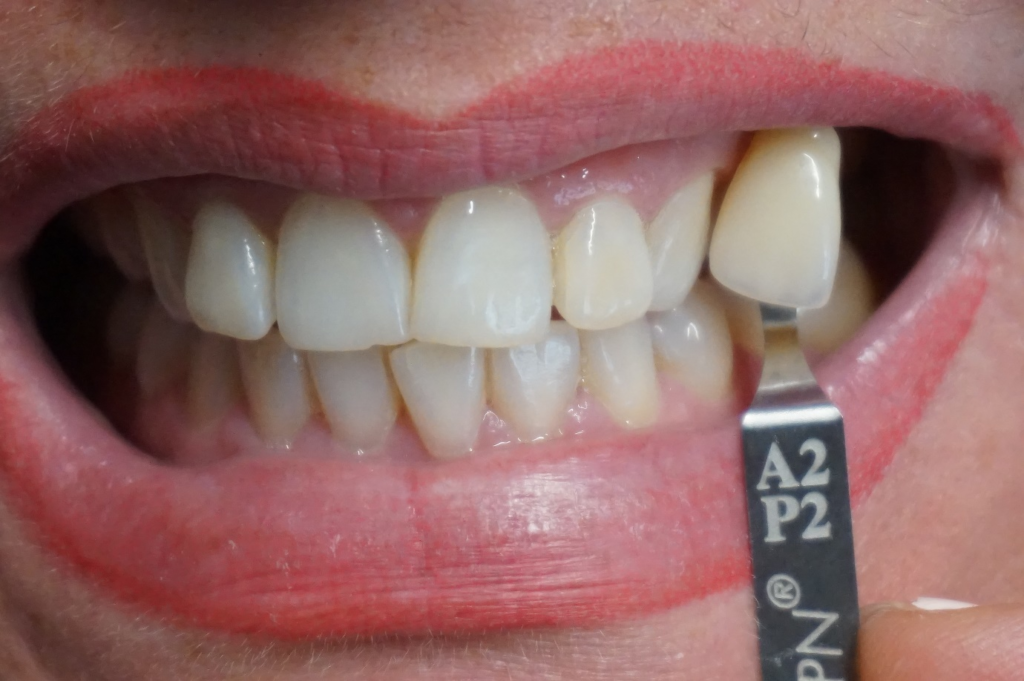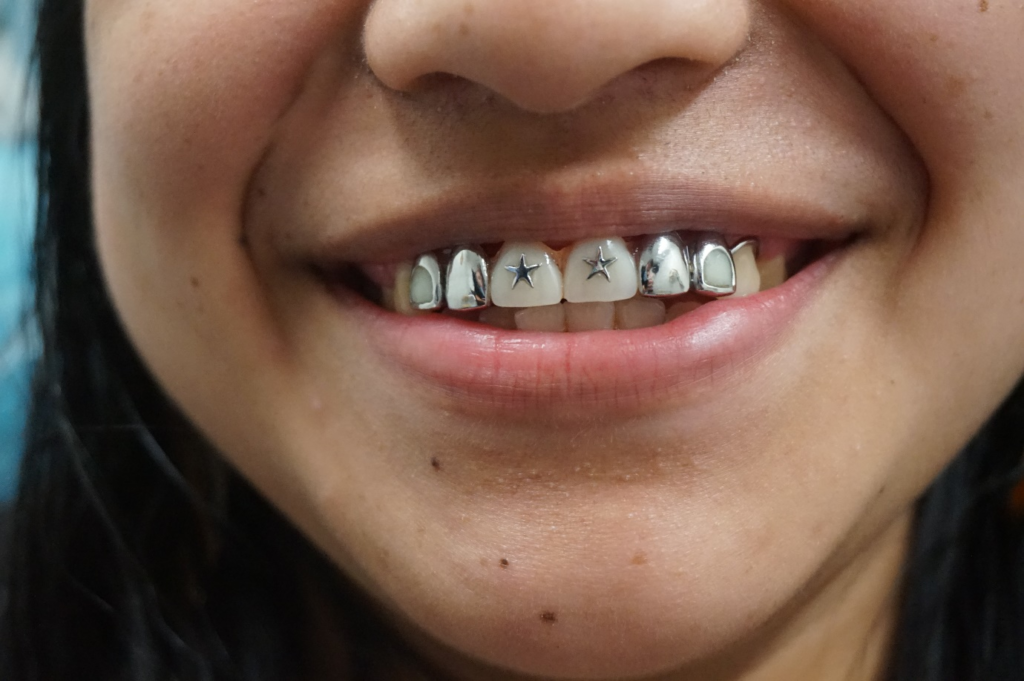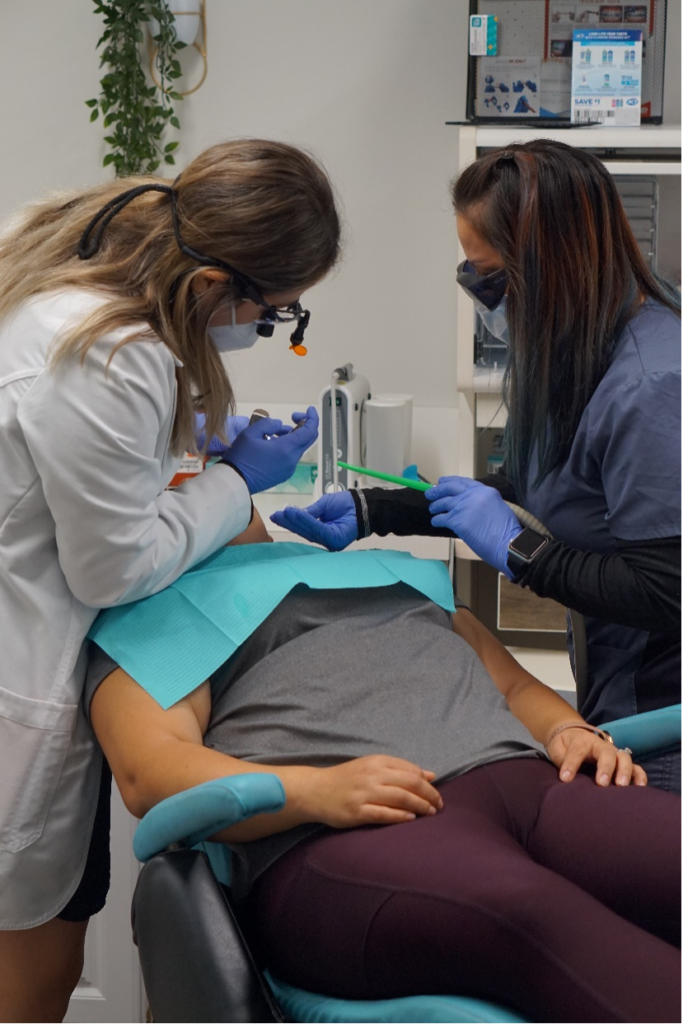Dental emergencies tend to be uncomfortable and painful, requiring immediate attention. It’s critical to know how to cope with these circumstances until you can obtain professional help. Managing a dental emergency can exacerbate the condition and have serious implications.
In this thorough primer, we will explore the repercussions of dental crises, the several sorts of emergencies that might arise, and the five critical steps to take in the event of a dental emergency.
Types of Dental Emergencies
Dental crises can occur at any time, causing pain and agony. To respond effectively and seek quick care, it is vital to recognize the many sorts of dental emergencies. Here are some examples of common dental emergencies:
1. Toothaches
Strong toothaches may be a sign of deeper problems such as infection, decay, or dental abscesses. In addition to pain, sensitivity to cold or heat stimuli are possible side effects.
2. Knocked-out Tooth
When a tooth is entirely knocked out as a result of trauma or damage, quick treatment is required. Proper tooth handling and preservation may allow for effective reattachment.
3. Fractured or Broken Teeth
Accidents, sporting injuries, or chewing on hard objects can cause teeth to fracture or break. These situations can result in severe discomfort, bleeding, and sensitivity.
4. Dislodged Tooth
A dislodged tooth has been driven partially out of its position due to trauma or impact. It requires immediate intervention to avoid further damage and tooth loss.

5. Dental Abscesses or Infections
Bacterial infections that produce extreme pain, tenderness, and a pimple-like protrusion on the gum are known as abscesses. To avoid the spread of bacteria, these diseases must be treated right away.
6. Severe Oral Bleeding
Rapid bleeding in the mouth, whether caused by trauma or another source, necessitates quick attention to reduce the bleeding and determine the underlying cause.
7. Soft Tissue Injuries
Accidents or falls can result in damage to the tongue, lips, and cheeks. These injuries can result in copious bleeding and must be treated as soon as possible.
Consequences of Dental Emergencies
Ignoring or improperly addressing dental crises can have serious effects on your oral health and general health. Understanding the potential outcomes is critical in emphasizing the urgency of getting quick expert assistance. The following are some effects of various dental emergencies:
1. Increased Pain and Discomfort
To begin, dental crises frequently result in extreme pain and suffering, which can interfere with routine tasks such as eating, sleeping, and speaking. Delaying therapy can make the discomfort worse and aggravate the underlying problem.
2. Risk of Infection
Dental problems, such as abscesses or infections, have the potential to spread bacteria throughout the oral cavity and into the bloodstream. Untreated infections can cause systemic problems and hurt overall health.
3. Tooth Loss
Any dental emergency not treated promptly can result in irreversible tooth loss. Teeth that have been knocked out, serious breakages, or untreated infections might jeopardize the health and stability of the impacted tooth.

4. Complications and Further Damage
When dental emergencies are ignored, they can lead to consequences that include gingivitis or even bone loss, requiring more comprehensive dental treatments. Postponing treatment may necessitate more invasive and expensive procedures to restore dental health.
5. Impact on Overall Health
Oral health is intimately related to your overall wellness. Untreated dental emergencies can lead to systemic health problems such as cardiovascular disease, lung infections, and adverse effects for people who already have medical illnesses.
6. Psychological Impact
Finally, dental emergencies can induce worry, anxiety, and mental discomfort. The discomfort and changes in appearance caused by dental emergencies can impact one’s self-esteem and general standard of living.
Addressing Your Dental Emergency
Dealing with a dental emergency may be a challenging and stressful scenario. It is critical to remain cool and take the required steps to deal with the problem until professional assistance can be obtained. Here is a detailed guide to dealing with dental emergencies:
1. Stay Calm and Assess the Situation
It’s common to feel frightened and concerned during a dental emergency. However, it is essential to maintain calm to think properly and make sound decisions. Take a long breath, evaluate the situation, and note the symptoms, intensity of discomfort, obvious injury, and any other difficulties, such as bleeding or swelling. When seeking dental care, this assessment will aid you in communicating effectively with dental experts.
2. Manage Pain and Discomfort
Next, cleanse your mouth with lukewarm saltwater to relieve soreness. This can aid in the reduction of inflammation and the cleansing of the affected area. Temporary relief can be obtained from over-the-counter pain medicines such as ibuprofen or acetaminophen.
Aspirin should not be applied directly to the teeth or gums since it can trigger tissue irritation. To avoid harm to your tongue or cheeks, conceal any sharp edges or shards of a fractured tooth with dental wax or sugarless chewing gum.

3. Preserve a Knocked-out Tooth
When handling a tooth that has been entirely knocked out, be careful not to touch the root; instead, hold it by the crown. Rinse the tooth lightly with warm water to remove dirt or food particles, but refrain from scrubbing it.
Replace the tooth in its socket, making sure it faces the right way. If reinsertion isn’t feasible, keep your tooth moist by immersing it in milk or saliva. Seek immediate dental care because the odds of successful reattachment diminish over time.
4. Control Bleeding and Swelling
Should you suffer oral bleeding, use a clean cloth or gauze to provide mild pressure to the afflicted area. To clean the region and reduce bacteria, rinse your oral cavity out with warm saltwater. Apply a cool compress or an ice pack bundled in a piece of cloth to the afflicted face or lip to minimize swelling. Use it in 10-minute increments. Seek quick professional assistance if hemorrhaging or puffiness persists or becomes serious.
5. Seek Emergency Dental Care
While it appears last on the list, it is by far the most critical step, which means you cannot miss it or postpone your visit to the dental clinic. Explain the circumstance and request an immediate appointment at your local dentist’s office or emergency dental facility.
Dental experts have the skills, tools, and understanding to treat your dental emergency and provide the best possible outcome. Prompt professional care might help you avoid further issues and maintain your oral health.
Remember, every dental emergency is distinct, and these measures should only be used as broad guidelines. For a precise evaluation and personalized treatment, it is critical to speak with a dental specialist. To minimize pain, avoid adverse effects, and safeguard your oral health, dental emergencies require quick intervention. Connect with our expert dentists in Jacksonville, FL that provide a range of preventive dentistry services as well as emergency dental services such as tooth pain, infection and swelling, root canal therapy, and wisdom teeth removal.
Check out our website to explore our general and cosmetic dentistry services as well!


